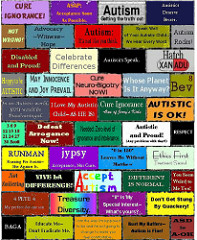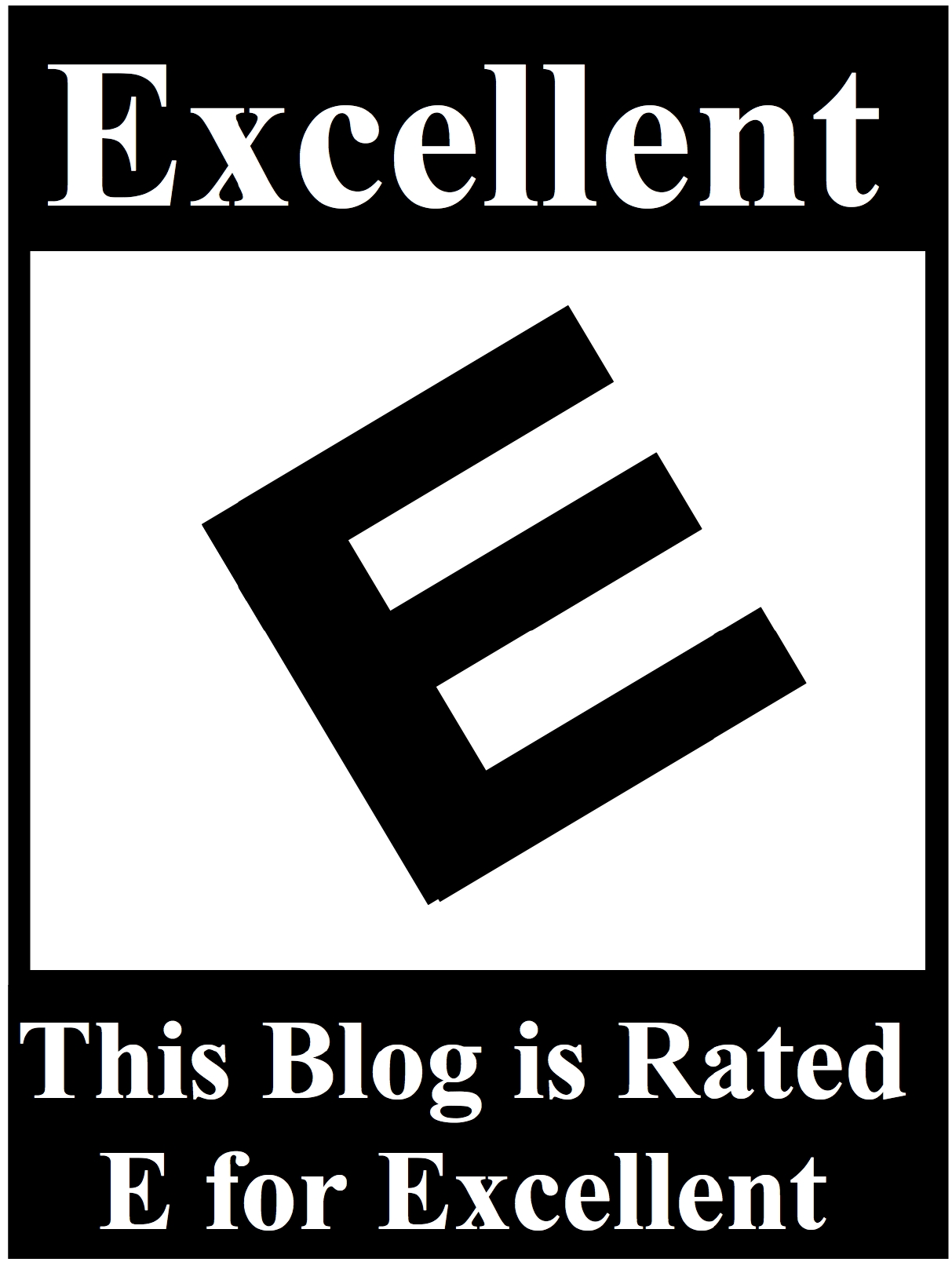I hate hearing about “both sides” in news pieces. It’s not that I don’t want to hear what people have to say; rather, my complaint is with the whole idea of “presenting both sides”.
I should note that I’ve been a freelance writer for various local and national publications. So let me explain a bit about what the press does before I explain the reasons for my statement.
Journalists and reporters are encouraged to find stories that fill a number of requirements; depending upon their editors’ preferences, they may be looking for background to current events, introducing new discoveries, showing the personal sides to big events, exposing wrongdoing, educating the public, describing controversy, or providing inspiration. (I find it somewhat disheartening that the press is so slanted toward “stories” rather than “news”. I think this reflects a lot of the emphasis on warm-fuzzy human interest elements at the expense of focusing on actual information. Maybe I’m just a jaded scientist, but I like more details and verified facts in my news.) Of course, most news items stories combine several of these aspects.
There are a variety of different kinds of journalists and reporters. Some journalists have large amounts of specialised background in particular fields that they use to understand, put into context, and interpret the news, which enables them to know how to sift through information, evaluate it and present it in a manner that is intelligible to people who aren’t as well-versed.
In contrast, many live media reporters tend to have more background in the presentation of the news, and frequently have to reduce an hour or more of recording down to just a few minutes of “sound bites” arranged in the popular three part news-program format of: When we return, we’ll tell you this amazing news; Here I am telling you this amazing news; and My co-anchor just told you this amazing news.
Okay, you were probably aware of most of that. But to get those Controversies! and New Discoveries! and Inspiring Personal Stories! and Expose Wrongdoings! (excuse me, Expose Alleged Wrongdoings!), they frequently follow the dictate of getting quotes and information from both sides. Of course, sources who can deliver “sexy” sound-bites are especially preferred by live media reporters.
So what’s wrong with presenting both sides? We want balanced reporting, right?
Several things. Firstly, the formula for both sides lends the assumption that “both” means “two”. In real life, there are always more than two sides to anything. Real life is not games of chess or Go with just two opponents. We all know this intellectually, but it gets lost in the usage of “both” and in the constraints of describing controversies in a few minutes of broadcast time or a few inches of column space.
Secondly, reporters (and an alarming number of journalists) will falsely ascribe equal weight to “both sides” of a controversy. This is especially disastrous in science & health reporting. Most journalists and reporters don’t have a sufficient background in the particular science field they are reporting upon to be able to evaluate the quality of the science research. That in itself is not the bad part — the bad part is that what they should be able to evaluate is the background or the integrity of the person who is sourcing the exciting new information to the press.
Let’s face it; scientific research is complex, and without an understanding of the context and the significance of the statistical analyses, new study findings can give the impression that scientists don’t agree on anything. You can find someone (even a someone with a PhD) who disagrees with any given theory or finding. Look long enough, and you can find geologists who don’t believe in plate tectonics, meteorologists who don’t believe in global warming, biologists who don’t believe in evolution, doctors who don’t believe in the need for basic double-blind studies to verify treatments, probably even geographers who don’t believe the earth is round. On the non-science end, I bet you could even find a few teachers who believe that some children can never learn anything.
But that someone, even a person with a background in science or the medicine branch of science, believes something contrary to what the other 99% of their peers trust to be true, does not mean that such contrary views are of equal weight.
Being contrary is not the same thing as being skeptical. Having a novel theory doesn’t automatically mean that a person is a brave pioneer rallying against ossified conventional thinking. Real science is self-correcting, and plenty of former standard, conventional ideas have fallen by the wayside as further research upholds the new ideas. Plate tectonics was a novel idea once, and work by many people has supported the idea, and the idea has also helped explain other aspects of geology, so it is now the conventional paradigm. In real science, if a novel idea repeated fails to be supported by different methods of research, then it is dropped. In fact, researchers test the worth of their ideas by trying to disprove them, rather than by picking out random bits of facts that support them.
Lastly, reporters will often go for the emotional angle, which quickly leads the trail out of reality-based news. “Truthiness” is favored over facts, belief is favored over evidence, testimonials are favored over data results, and of course, a few distraught citizens without any science or medical background are favored over thousands of doctors, hundreds of researchers, and entire libraries of impartially-tested evidence-based practice. “If it bleeds, it leads” and if it doesn’t actually bleed, then impassioned tears are a close second.
Worse, anyone can claim that a set of facts go against their “belief systems” and suddenly magic fairy dust gets sprinkled over the news story, so now any sort of nonsense is acceptable, no matter how foolish or dangerous it is. Unfortunately, things do not cease to exist simply because we decide that we don’t like them, or that they don’t fit the way we believe the world ought to be. Clapping hard enough does not make Tinkerbell real.
What would you think of a news story about the latest Around-The-World race if the reporter felt obliged to give equal time to “both sides” by interviewing someone who believed in a Flat Earth?
What would you think of a news story about an earthquake if the reporter felt obliged to give equal time to “both sides” by interviewing a seismologist and someone who claimed that earthquakes were due to the movement by the giant animal that holds up the world?
What would you think of a news story about children with autism if the reporter felt obliged to give equal time to “both sides” by interviewing a geneticist and a parent who believes in a world-wide conspiracy by numbers of governments and pharmaceutical companies who want to poison children’s brains?
[edited to correct typographical error]








It’s not all strawberry versus chocolate ice cream! « Andrea's Buzzing About: said,
6 October 2012 at 19:49
[…] (* More on the problems with the news media and “balance” in my earlier post, “Both Sides Now”.) […]
The sum of good intentions « Andrea’s Buzzing About: said,
11 October 2008 at 12:55
[…] you are a news reporter trying to ensure “balanced coverage” of a story by quoting from “both sides” — when one of those “sides” lacks credibility and just presents distraught […]
Facts aren’t enough « Andrea’s Buzzing About: said,
6 March 2008 at 6:11
[…] the controversy”. Next time there’s an earthquake, will the newspaper feel obliged to give equal time to “both sides” by interviewing both a seismologist and someone who claims the earthquake was due to the movement […]
laurentius-rex said,
12 January 2008 at 5:56
Erik a form of prosopagnosia is mentioned as far back Thucydides apparantly.
I found a good article “covert recognition and anosognosia in prosopagnosic patients” Edward HF de Haan
In Humphries, G. Ed. Case studies in the Neurospyschology of Vision, Pschology Press, Hove 1999.
Erik said,
11 January 2008 at 18:32
Hello, I found your blog while searching for Asperger’s Syndrome blogs. I am a person with AS and am trying to find out more, your blog has been really fun to read and discover. I actually found it by searching for AS and Prosopagnosia in the same search.
I have some questions I’d like to ask just from a personal standpoint with your experience. I’ve been searching around the internet for more info on AS and Prosopagionsia at the same time, but I haven’t found what I am looking for.
I am not sure if you read these comments or not, but if you have an email or instant messanger, I’d love to be able to get your feedback on a few quick questions about Aspergers and Prosopagnosia, specifically their involvement together.
My AIM is holyoak2 and my email is erikflowers (at-symbol) gmail.com
thanks
The Goldfish said,
11 January 2008 at 16:34
The equal weights issue is a major problem. I get most of my news from the BBC, which is paid for by license-payers in the UK and subsidised by the government; in order to enjoy this position it has special responsibilities towards impartiality. And as a result, there are constant arguments about its bias toward one group of another.
During the run up to UK elections, this can be funny listening to satirical comedy programmes – if they mention one party, they have to mention the others. And clearly there aren’t equal amounts of news or interest in any given news week.
Ben Goldacre who writes the Bad Science collumn in the Guardian newspaper writes a great deal about the way in which quack theories are often presented as having equal weight to established science by the media – I imagine that’s a blog you’d enjoy in any case: http://www.badscience.net/
laurentius-rex said,
11 January 2008 at 11:25
… It’s cloud illusions I recall, I really don’t know clouds, at all.
http://www.sciencedaily.com/releases/2005/02/050211081600.htm
An astounding fact about “neurotypical” cognition is change blindness, the inability to recognise significant changes in the background when attention is interupted, it accounts for the way movie makers can get away with the most horrendous continuity errors,
journalist are always biased towards a good story, but don’t suppose that scientists are not biased too in what they wish to and what they can research.
I am researching what I want to, but the bias is in my desire, fueled as it is by my whole visual outlook on the world.
Anyway I am probably so busy finding papers to support my hypothesis I am going to miss any that do not. The abscence of contrary evidence in itself is not proof that there can be no contrary evidence, merely that there is strong bias against looking for it.
Lets see now, a couple of classics: –
Ross L (1977) The intuitive psychologist and his shortcomings: Distortions in the Attribution Process. In L Berkowitz edited Advances in Experimental Social Psychology Vol 10 New York Academic Press
and
Ross L, Lepper M R, & Hubbard M (1975) Perseverance in self perception and social perception: Biased attributional processes in the debriefing paradigm Journal of Personality and Social Psychology 32 880 -892
Two groups know to be either pro or anti Cannabis were given “neutral” scientific evidence to consider.
Did it change there perceptions in either direction?
What do you think?